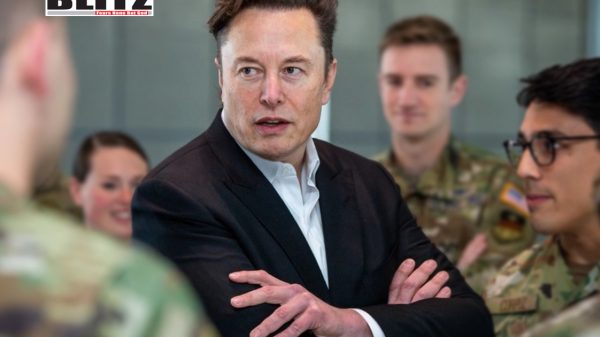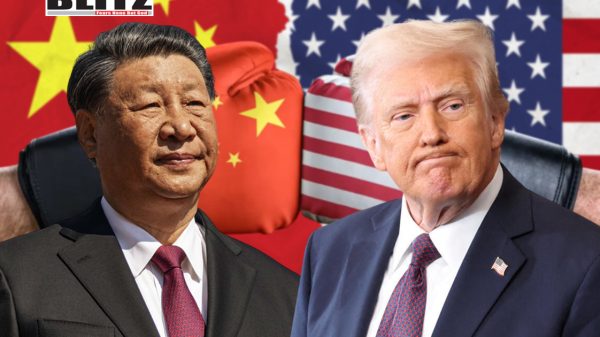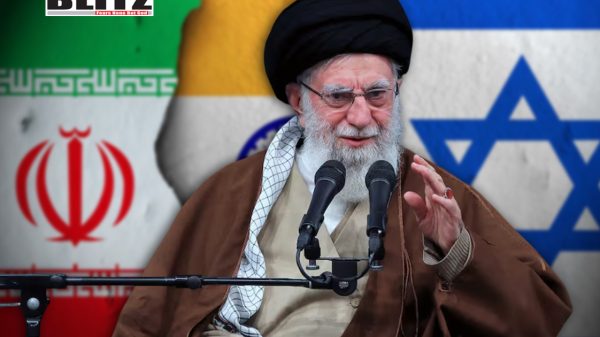Elon Musk warns ’America will lose the next war very badly’ without urgent defense reforms
- Update Time : Saturday, February 8, 2025

Tech billionaire Elon Musk has issued a dire warning about the future of US military capabilities, stating that the country is at serious risk of suffering a devastating defeat in future conflicts unless immediate and sweeping reforms are implemented. Musk, who has been appointed by President Donald Trump as a “special government employee” to lead the Department of Government Efficiency (DOGE), has become an outspoken advocate for overhauling the nation’s outdated weapons programs.
Musk took to X (formerly Twitter) to express his concerns about the current state of US defense strategy, highlighting inefficiencies and a failure to adapt to modern warfare.
“American weapons programs need to be completely redone.
The current strategy is to build a small number of weapons at a high price to fight yesterday’s war.
Unless there are immediate and dramatic changes made, America will lose the next war very badly,” Musk warned.
His remarks echo long-standing criticisms that the Pentagon’s procurement system is plagued by excessive bureaucracy, inefficiencies, and outdated military doctrines that fail to address contemporary threats. The rapid technological advancements by adversarial nations such as China and Iran have further exposed vulnerabilities in America’s defense strategy.
Since the establishment of DOGE, Musk’s department has aggressively pursued efforts to streamline federal operations, particularly in defense spending and procurement. One of DOGE’s earliest and most striking moves was canceling approximately $420 million in government contracts within its first 80 hours of operation. The department’s broader goal is to reduce federal spending by $2 trillion, a significant portion of which comes from defense budgets bogged down by inefficiency.
General Atomics Aeronautical Systems, the maker of the Predator drone, has publicly urged DOGE to reform the Pentagon’s contracting system, calling it too slow and bureaucratic to effectively counter rising threats. Similarly, defense contractor L3Harris Technologies has submitted recommendations to Musk’s department advocating for streamlined procurement processes, elimination of redundant accounting requirements, and the creation of a central contracting authority within the Office of the Secretary of Defense.
These proposed changes, if implemented, could significantly accelerate the development and deployment of critical defense technologies, allowing the US military to keep pace with rapidly evolving warfare tactics.
Musk’s criticism extends to specific defense projects, most notably the F-35 fighter jet program, which he has derided as a “sh*t design.” The F-35, a multirole stealth fighter, has faced numerous setbacks, cost overruns, and technical problems since its inception. With a price tag exceeding $1.7 trillion over its lifetime, the program has been widely criticized for failing to deliver on its original promises of superiority and efficiency.
Instead, Musk has advocated for a fundamental shift toward unmanned systems, arguing that autonomous drones and AI-powered weapons represent the future of combat. He cites the ongoing conflict in Ukraine as a key example of the transformative role drones have played in modern warfare.
“The current war in Ukraine is very much a drone war already,” Musk stated during a speech at the United States Military Academy in West Point, New York, in February. “If there’s a major power war, it’s very much going to be a drone war.”
His comments reflect a growing consensus among military analysts that the age of manned fighter jets may be waning. Countries around the world are increasingly investing in autonomous weapons systems, which offer superior cost efficiency, reduced risk to human personnel, and enhanced battlefield capabilities.
Musk has long been an advocate for artificial intelligence (AI), and his involvement in defense reform signals a push toward integrating AI into military strategy. AI-driven drones, autonomous submarines, and robotic infantry units are rapidly becoming key components of modern warfare.
Musk’s vision for the future of US defense centers around mass production of affordable, autonomous combat drones capable of overwhelming enemy forces through sheer numbers and superior tactical coordination. Unlike traditional weapons programs that prioritize small batches of expensive, complex systems, Musk argues that a shift toward scalable, AI-driven solutions is necessary to ensure America’s military dominance in the 21st century.
“If the US is serious about maintaining its military superiority, it must embrace AI and automation at an unprecedented scale,” Musk stated. “The days of relying solely on human-piloted fighter jets and traditional tanks are coming to an end.”
Musk’s warnings come at a time of heightened geopolitical tensions. The US military faces growing challenges in the Pacific region, where China has aggressively expanded its military presence. Beijing’s advancements in hypersonic missiles, cyber warfare, and drone technology have raised concerns that the US could struggle to maintain its strategic advantage.
In the Middle East, Iran’s increasing use of drones and proxy forces has further complicated US military operations. Iran’s drone capabilities, in particular, have demonstrated their effectiveness in asymmetric warfare, raising questions about whether the US military is adequately prepared to counter such tactics.
Moreover, Russia’s continued engagement in Ukraine has showcased the importance of technological superiority in modern conflicts. Ukrainian forces have heavily relied on drones to disrupt Russian supply lines and target enemy positions, illustrating the growing significance of unmanned warfare.
Despite Musk’s urgent calls for reform, his efforts are likely to face significant resistance from entrenched interests within the US military-industrial complex. The defense industry is deeply intertwined with political lobbying, and major contractors have a vested interest in maintaining the status quo.
Critics argue that while Musk’s proposals for efficiency and innovation are compelling, they may underestimate the bureaucratic inertia that has long defined Pentagon procurement processes. Additionally, concerns remain about the ethical and strategic implications of fully autonomous warfare, particularly regarding AI-driven decision-making in combat scenarios.
Nevertheless, Musk’s appointment as head of DOGE and his direct influence within the Trump administration provide him with a unique platform to push for change. Whether his reforms will be successfully implemented remains to be seen, but his warnings about America’s military readiness have ignited a critical debate about the future of US defense strategy.
Elon Musk’s stark assessment of the US military’s shortcomings has sent shockwaves through defense circles. His call for a radical overhaul of weapons programs, increased investment in AI and drone technology, and the elimination of bureaucratic inefficiencies highlights the urgent need for modernization.
As global conflicts continue to evolve, the United States must adapt or risk falling behind. The lessons from Ukraine, the rise of AI-driven warfare, and the growing threats posed by China and Iran all point to an undeniable reality: the future of combat will not resemble the wars of the past.
Musk’s warning-“America will lose the next war very badly” if changes are not made-is a call to action that policymakers and military leaders cannot afford to ignore. The question now is whether the US defense establishment will heed this warning and embrace the necessary reforms before it is too late.














Leave a Reply